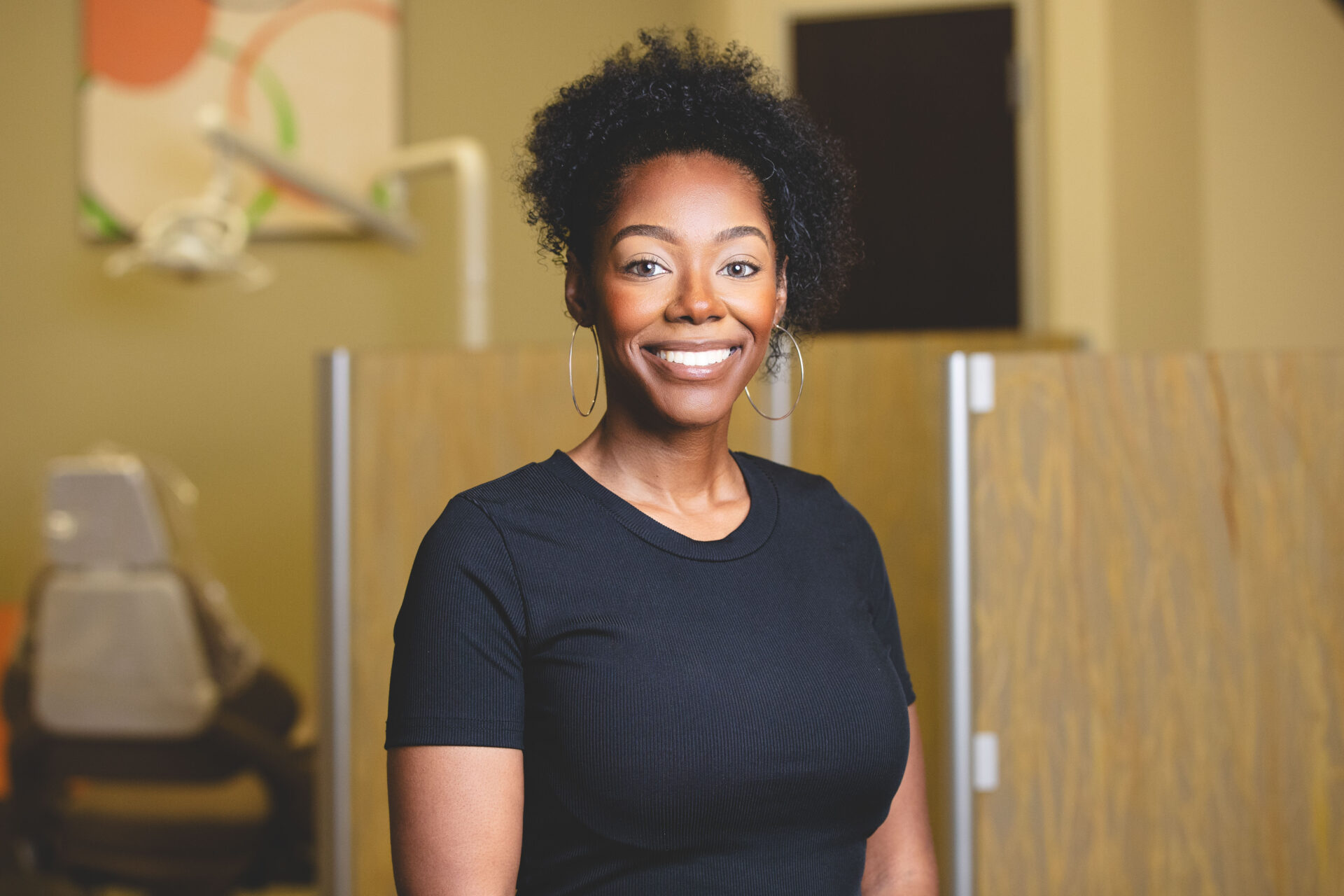Coppell Sleep Apnea Treatments
Breathe Better, Sleep Soundly
At Bliss Orthodontics, we understand that restful sleep is essential for overall well-being. Dr. Anabella Henao and our compassionate team are here to help you address sleep apnea with personalized care and effective solutions.
What Is Sleep Apnea?
Sleep apnea is a condition where breathing repeatedly stops and starts during sleep. This can lead to daytime fatigue, concentration issues, and other health concerns. Recognizing and treating sleep apnea is crucial for maintaining a healthy lifestyle.
Symptoms of Sleep Apnea
Recognizing the symptoms of sleep apnea is critical for getting treatment in time. Here are some of the most common signs you can look for:
Loud Snoring
Snoring could be a sign that something's not quite right. If your snoring is frequent and disruptive, it might be caused by a partially blocked airway, which is one of the most common signs of obstructive sleep apnea.
Gasping for Air During Sleep
Sleep apnea interrupts your breathing, sometimes dozens of times a night, pulling you out of deep sleep and leaving you feeling groggy the next day.
Morning Headaches
Oxygen deprivation during the night and interrupted sleep can lead to dull, persistent headaches in the morning, especially around the temples or forehead. If this happens regularly, sleep apnea could be the cause.
Excessive Daytime Sleepiness
Constant interruptions in your sleep cycle can leave you struggling to stay awake, concentrate, or keep your energy up throughout the day.
Causes of Sleep Apnea
Understanding what's behind your sleep apnea symptoms can help you take the first step toward better rest and better health.
Obesity
Carrying extra weight can lead to restricted airflow while sleeping. This is one of the most common and treatable causes of obstructive sleep apnea.
Nasal Congestion
Chronic nasal congestion forces your body to work harder to get enough air, which increases your risk of disrupted breathing patterns during the night.
Family History
The shape of your jaw, the size of your airway, and even the way your brain regulates breathing can be influenced by genetics.
Lifestyle Habits
Alcohol and tobacco relax the muscles in your throat, increasing the chance of collapse and breathing interruptions. Adjusting your habits may improve your sleep more than you realize.

Types of Sleep Apnea
Not all sleep apnea is the same. Here's a closer look at the three primary types, each with its own cause and treatment approach.
Obstructive Sleep Apnea (OSA)
OSA happens when the soft tissues in the back of your throat relax too much during sleep. This creates a blockage in your airway, making it difficult for air to pass through.
Central Sleep Apnea (CSA)
With CSA, your brain doesn't send the right signals to the muscles that control your breathing. People with CSA often don't snore, but they still experience interrupted breathing and restless nights.
Complex Sleep Apnea Syndrome
Also known as mixed or treatment-emergent sleep apnea, this condition is a combination of OSA and CSA. It often appears when someone being treated for OSA develops CSA-like symptoms.

Effective Treatments for
Sleep Apnea
At Bliss Orthodontics in Coppell, we take a modern, personalized approach to sleep apnea care. Dr. Henao works closely with each patient to recommend treatments that are comfortable, effective, and fit easily into your lifestyle.
Oral Sleep Appliance
Custom-made oral appliances gently shift your jaw or tongue into a position that keeps your airway open while you sleep. They're easy to wear, discreet, and especially helpful for patients with mild to moderate OSA who want a non-invasive solution.
Mandibular Advancement Devices
These specialized oral appliances (abbreviated as "MADs") are designed to move your lower jaw slightly forward. That small shift makes a big difference-it helps prevent your airway from collapsing while you sleep.
Occlusal Guard
Occlusal guards can provide both protection and better sleep quality. These guards ease the tension on your jaw joints and muscles, which can help with sleep apnea symptoms and morning soreness.
Frequently Asked Questions About Sleep Apnea
If you have questions about sleep apnea, you're not alone. Here are some common questions and answers to help you understand more about this condition and its treatments.